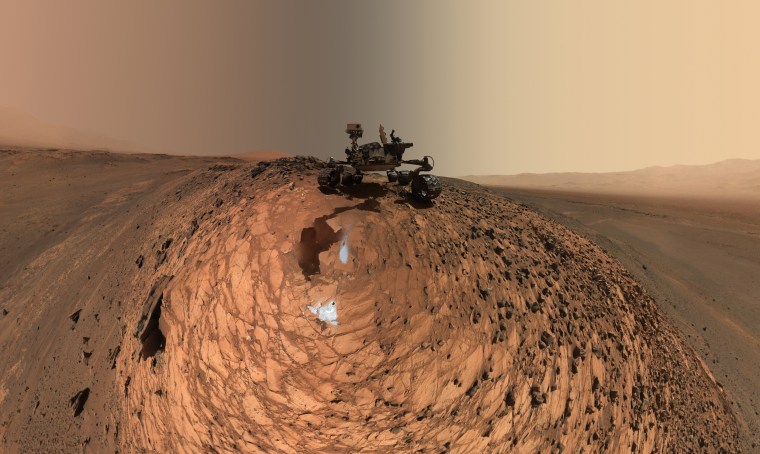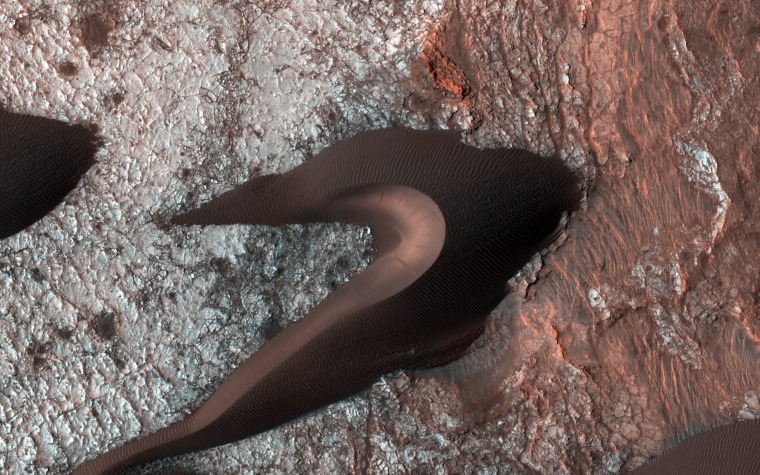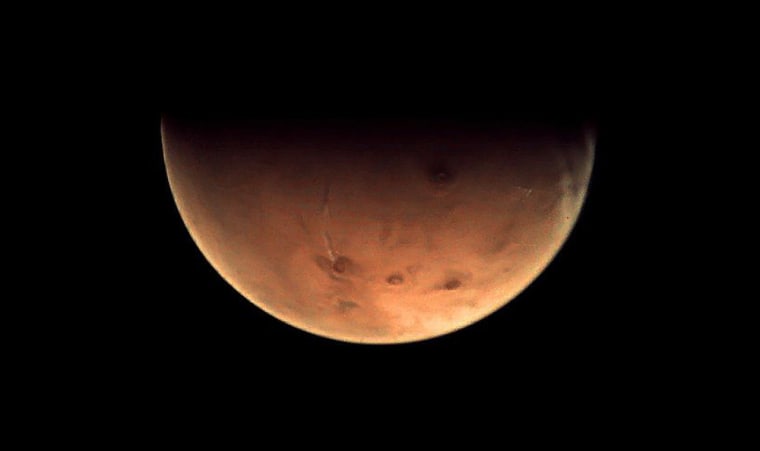Ellen Stofan, current NASA chief scientist, said sending humans to Mars would be a powerful step in the search for life beyond Earth.
"I am someone who believes it is going to take humans on the surface [of Mars] … to really get at the question of not just did life evolve on Mars, but what is the nature of that life," Stofan said at a scientific workshop in Irvine, California, hosted by the National Academy of Sciences. "To me, we're going to go Mars because Mars holds the answers to such fundamental scientific questions that we're trying to ask."
Related: A Manned Mission to Mars: How NASA Could Do It
The workshop, titled "Searching for Life Across Space and Time," drew together leading scientists who are, through various avenues, working to find signs of alien life in Earth's solar system and beyond. Stofan has argued before for the scientific benefits of a human mission to the Red Planet.
Stofan said she believes strongly in sending humans to Mars to search for signs of life because humans can perform tasks that would be difficult for a rover. Humans can operate drills that could go deeper than the few inches plumbed by the Curiosity rover, or even beyond a depth of 6.5 feet (2 meters), which is the expected limit for the Mars 2020 rover. Humans could potentially explore more locations than a rover could and perform deeper scientific analysis than what is possible using a remote, robotic scientific laboratory, she said.
"We now know water was stable for long periods of time on the surface [of Mars], and Mars' potential for habitability, I think, is huge," Stofan said. "I do believe that we need … brave people to spend time on Mars, to have a scientific laboratory on Mars, to do the work that we need to do to truly understand what life on Mars tells us about life beyond Earth."
Multiple sessions at the meeting focused on the search for signs of ancient life or even present-day life on Mars. Today, the surface of the Red Planet appears to be inhospitable to the kind of life that exists on Earth, mainly because liquid water exists only in very small amounts, and is extremely salty. Other factors would also make life hard on the Red Planet, including high doses of space radiation (because Mars lacks the protective atmosphere and magnetic field that Earth has),and wildly oscillating surface temperatures: During the Martian summer months, the surface of the planet might be 70 degrees Fahrenheit (21 degrees Celsius) during the day, but plummet to minus 100 F (minus 73 C) at night.

There are examples of extreme life-forms on Earth that can survive in some of those conditions, including frigid temperatures and exposure to high doses of radiation. However, liquid water is a necessity for all known Earth-based life-forms. But based on the discovery of brines on the surface of Mars, some people think it's possible that life exists on the Red Planet today. With that in mind, some people are concerned that sending rovers and humans to Mars could risk contaminating the planet with Earth-based microbes.
Right now, NASA has plans that could allow scientists to bring rock samples back to Earth from Mars, Stofan said. An in-depth analysis of a Martian rock might help the scientific community make a more informed decision about whether life likely exists on Mars today, and thus what steps would be needed to prevent biological contamination from a human visit to the Red Planet, Stofan said.
Related: Is an Alien Megastructure Causing This Star's Strange Behavior?
"I think these are questions that should be in the hands of the science community via the [NAS]," she said.
Stofan briefly addressed concerns about whether NASA could actually pull off its plan to send humans into orbit around Mars by the early 2030s and onto the planet's surface by the late 2030s, saying that she is an "incredible optimist on this."
The scientist added that she has also heard people say that there is "no real reason" to send humans to the surface of Mars (as opposed to robotic missions), and she called on members of the science community to "speak up" if they disagree.

The scientific interest in Mars extends beyond NASA. The European, Indian and Chinese space agencies are all sending probes or rovers to Mars. Private companies (primarily Elon Musk's SpaceX) are also working on plans related to Mars. Someone in the audience asked Stofan if she thought the global scientific community is engaged in a sort of "soft space race" to Mars.
"I really don't see it as a soft race. I see it as this amazing confluence of interests," Stofan said. "I think Mars has incredible public appeal. .... It engages the public in a way that very few other things do, which is great.
Related: If Aliens Call, Does Humanity Have a Plan?
"I think this is a great opportunity to sort of explore Mars with humans in a very different way than we went to the moon with humans, where it really was a race. [Mars], I think, is going to be motivated by cooperation and collaboration. That's how we're going to move forward, rather than competition."
Original article on Space.com.
Editor's Recommendations
Mars Facts: Life, Water and Robots on the Red Planet; Mars Life Hunt May Require Manned Missions | Life on Mars; Water on Mars: Exploration & Evidence
For more of the breakthroughs changing our lives, follow NBC MACH.
